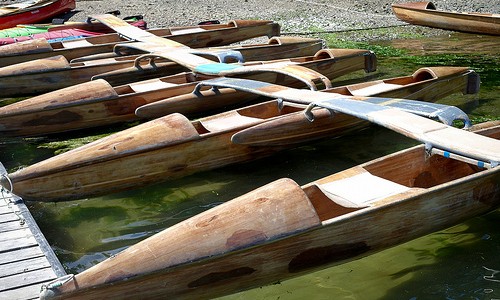Canoe believe what these Warwick graduates are doing?
Two intrepid graduates from Warwick University are embarking on a 2954-mile canoeing expedition from Nantes to Istanbul – believed to be one of furthest ever distances travelled across Europe in a canoe.
Nathan Wilkins and James Warner-Smith, who were pivotal members of the Warwick Athletics and Cross Country club, will be travelling for four months through ten different countries.
Their route takes them through France, Germany, Austria, Slovakia, Hungary, Croatia, Romania, Serbia and Bulgaria, before finishing in Turkey.
The pair are being sponsored by the Lord Rootes Memorial Fund, which supports challenging and creative projects adopted by Warwick students.
At the time of writing, the students are at the very beginning of the journey, which takes them upstream on the Loire in France.
Despite the duo’s fears, Wilkins revealed that the original travel on the familiar waters of Leamington Spa helped to build their strength.
“Remembering the first half day when I could barely move my arms after getting out of the canoe, physically I think we’re now feeling stronger and more aware of the physical toll each day takes,” he said.
“Even the basic stuff such as taking on food, hydrating and even just setting off at the start of the day has all become a lot more smooth.”
And in this most isolationist of pursuits, Wilkins is confident that the pair can work together to reach Istanbul in one piece.
“Most people ask how we’re going to cope with being stuck in the same boat for hours every day.
“I can confirm that we are yet to run out of topics after five days of repeating the same stretches of water with only Midlands wildlife to talk to.
“It may not be riveting, but we’ve reached some conclusions that will definitely advance humanity as we know it.”
Wilkins and Warner-Smith will be largely unable to connect to the Internet during their adventure, but will attempt to update followers on their Twitter page.
Any other members of sports teams, or individuals from within Warwick University, who are embarking on similar projects are encouraged to contact The Boar.

Comments